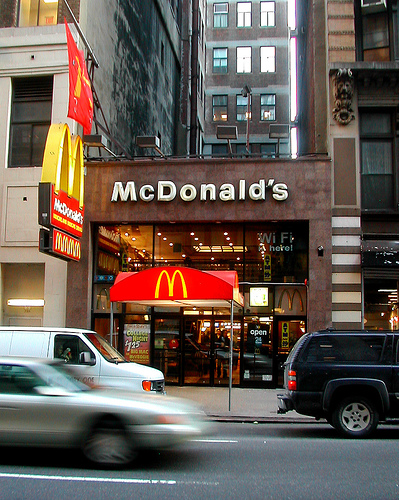"World's oldest hamburger" found in man's pocket

In 1999, a Utah man named David Whipple stuffed a McDonald's hamburger into his coat pocket. He later found the burger, and miraculously it has seemingly survived the decades virtually unchanged. Dubbed the "world's oldest hamburger," Whipple's apparently immortal hamburger recently made the rounds on The Doctors, where they inspected the burger with visible expressions of horror.
It may seem strange that cooked meat would not decompose. But Serious Eats found that this is not due to a crazy-ass amount of chemicals and preservatives in McDonald's burgers. (Not that their food doesn't have crazy-ass amounts of chemicals and preservatives, mind you.)
In 2010, Serious Eats commissioned a food scientist to test the urban legend that a McDonald's burger will not rot. He found that a plain hamburger - whether homemade from scratch or from McDonald's - if left in the open air, will essentially mummify itself and last indefinitely. Theories ranged from the amount of salt in the patties, to the relative size of the burger (a larger burger would take longer to dehydrate).
The plain burger is surprisingly suited for the task of self-mummification. Without the moisture of toppings, the burger's large surface area relative to its volume means that it dries out very quickly. Once it dries out, the meat has essentially been preserved. Think of it as a low-temperature, incredibly unsafe-to-eat form of beef jerky.
It probably also helps that the burgers are cooked at a high temperature right before being set out on the counter for a month. This cooking creates what is - if only briefly - an essentially sterile product. That gives the burger a leg up on the bacterial competition. Bacteria flourish in damp conditions and perish in dry ones, so the faster the burger dries out, the more likely it is that it will last.
Image courtesy Flickr/smenzel

2 comments